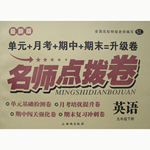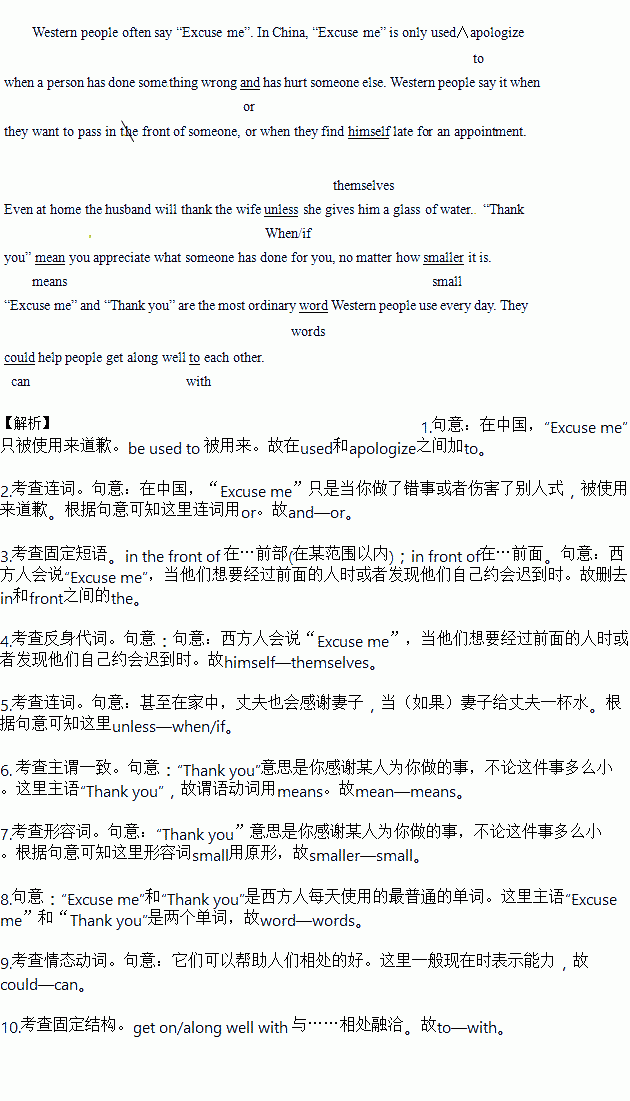题目内容
假定英语课上老师要求同桌之间交换修改作文,请你修改你同桌写的以下作文。文中共有10处语言错误,每句中最多有两处。每处错误仅涉及一个单词的增加、删除或修改。
增加:在缺词处加一个漏字符号(∧),并在其下面写出该加的词。
删除:把多余的词用斜线(\)划掉。
修改:在错的词下划一横线,并在该词下面写出修改后的词。
注意:1.每处错误及其修改均仅限一词;
2.只允许修改10处,多者(从第11处起)不计分。
Western people often say “Excuse me”. In China, “Excuses me” is only used apologize when a person has done something wrong and has hurt someone else. Western people say it when they want to pass in the front of someone, or when they find himself late for an appointment. Even at home the husband will thank the wife unless she gives him a glass of water. “Thank you” mean you appreciate what someone has done for you, no matter how smaller it is. “Excuse me” and “Thank you” are the most ordinary word Western people use every day. They could help people get along well to each other.
 名师点拨卷系列答案
名师点拨卷系列答案

 also included health foods for the children.
also included health foods for the children. ted to lovers only.
ted to lovers only.